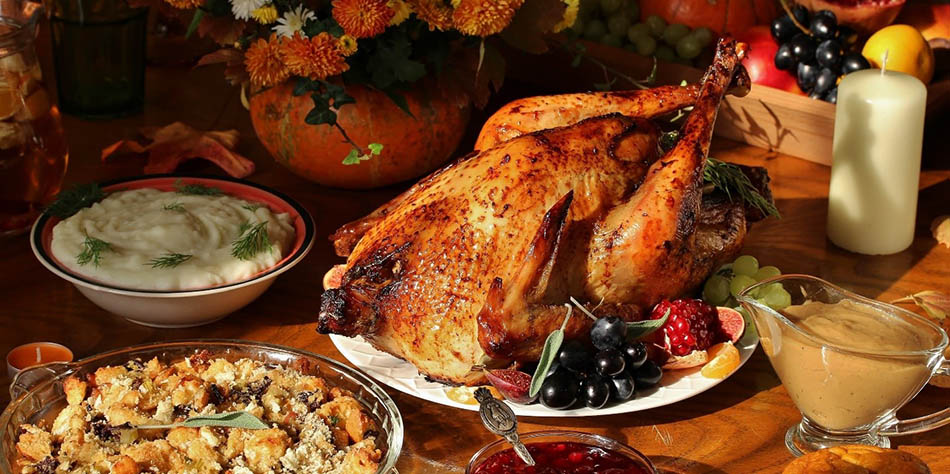
Enjoying seasonal festivities doesn't have to mean ignoring your heart health. Here's how to recognize and prevent holiday heart symptoms.
Food is a universal language that brings people together, especially during the holidays. Everyday diets often take a backseat to festive spreads laden with salt, sugar and saturated fat, explains Dr. Ali Baird, director of Cardiac and Vascular Services at HCA Healthcare, our larger system of care.
Alcohol tends to flow more freely as well, leading to binge drinking.
This type of overindulgence can lead to holiday heart symptoms if you're not careful.
What is holiday heart syndrome?
Holiday heart syndrome refers to atrial fibrillation (AFib) associated with binge drinking. AFib is an irregular and often rapid heartbeat, known as arrhythmia. The term "holiday heart syndrome" was coined in 1978 when a group of researchers observed 24 patients who had been hospitalized with AFib after a weekend of binge drinking. The patients didn't have a history of alcohol misuse, either — all it took was a couple of days to cause heart problems.
Binge drinking is a pattern of drinking alcohol that brings your blood alcohol concentration to 0.08% or higher. For women, that usually means drinking four or more drinks within two hours. For men, it means five or more drinks in the same timeframe.
The period between Thanksgiving and New Year's Day sees the largest increase in alcohol consumption. So, while holiday heart syndrome can happen any time of year, it's most common during the holiday season. It can affect anyone, but people with existing heart problems are especially at risk.
“In addition to overindulgences, gatherings with loved ones can cause stress and exhaustion. All of these factors can lead to arrythmias – or heart rhythm problems – in otherwise healthy individuals,” Dr. Baird said.
Holiday heart symptoms
It can be easy to dismiss holiday heart symptoms as a consequence of eating and drinking too much, so it's important to be aware of the signs. Common symptoms of holiday heart syndrome include:
- Fatigue
- Dizziness
- Heart palpitations
- Difficulty breathing
- Chest discomfort
While symptoms usually fade once you stop drinking, they can lead to serious issues if they persist, such as heart failure or stroke.
How do the holidays affect heart health?
The holidays themselves don't cause heart issues, but the behaviors you engage in can impact heart health. Besides spending time with friends and family, the holidays are often a time of excess. You gather around large meals that are typically richer than what you eat throughout the rest of the year. The holidays tend to disrupt normal routines as well, which may mean less sleep and exercise.
The holidays can also be stressful due to travel, grief or expenses. Or perhaps you feel pressured to get in the holiday spirit and ignore the feeling that something is wrong or overindulge as a way to cope with negative emotions. All of these factors can strain your heart.
How can you protect your heart health during the holidays?
If you're worried about holiday heart syndrome and how it might affect your holiday season, don't fret. You can still participate in the festivities and eat what you want as long as you're thoughtful about how you do so.
“There are habits we can adopt during the holiday season which can prevent holiday heart syndrome and lead to an overall healthier lifestyle,” Dr. Baird said.
Practice moderation
You might be tempted to load up your plate with everything on the table or go back for seconds, but practice portion control and allow your body time to adjust. It often takes 20 minutes after eating for your brain to realize you're full. That feeling of fullness is your signal to stop eating, and ignoring it leads to overeating. This can cause heartburn, gas and indigestion. “Choosing healthier food options and salt substitutes can help,” Dr. Baird said.
And, of course, be mindful of how much and how quickly you drink. It's also important to stay hydrated while drinking alcohol.
Get moving
You can also keep your heart healthy by resisting the urge to relax on the couch after a meal. Taking a short walk after eating can lower your risk of high blood pressure, which is one of the leading causes of heart disease. Being overweight or obese are contributing factors to heart disease too. Walking helps you burn calories and maintain a healthy weight.
“Exercise, walking after meals with family members and holding each other accountable is a great way to stay healthy during the holidays,” Dr. Baird added.
Keep up with your medications
If you take medication, stay on schedule — especially if it's for heart problems. Try setting reminders on your phone or smartwatch so you don't miss a dose. Take your medication as soon as you wake up or before you go to bed so you don't forget whether you've taken it.
The holidays are meant to be a joyous occasion, and protecting your heart health means you'll be able to enjoy them for many years to come. “Continue to motivate your loved ones around you and adopt these healthy habits,” Dr. Baird said.
Our broader network, HCA Healthcare, and the HCA Healthcare Foundation are supporting and collaborating with the American Heart Association on its unique, national initiative called Getting to the Heart of Stroke™. This initiative is educating communities and healthcare providers on how to better diagnose and treat patients with stroke, especially those who have AFib, in order to improve patient outcomes.
$webqFacilityNumber
Need a Physician?